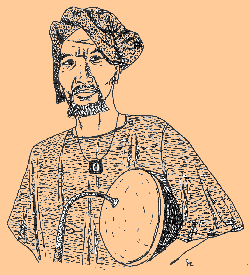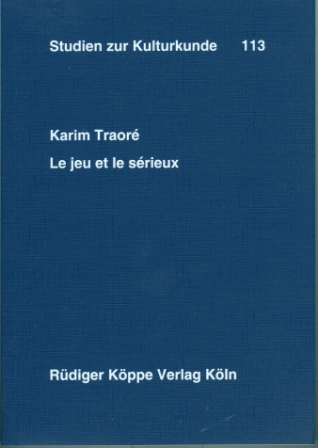



This work of literary anthropology considers the epic poetry of Mande hunters in the Mande region of West Africa. The author defines the term Mande region as the geographic area in West Africa shaped by the effects of imperialism on the Gana, Mali and Segu empires from the Middle Ages to the 19th century, an area which roughly corresponds to parts of today’s Mali, Senegal, and Burkina Faso. The study is divided into two parts.
The first part provides a socio-anthropological analysis of the Mande linguistic area, society, and hunters. Chapter 1 is a sociolinguistic sketch of contemporary Mali focussing on Manding (Bamana/Bambara and Maninka) as both the lingua franca and the language of Mande culture and literature. Chapter 2 presents a socio-anthropological analysis of the society’s awareness of history, while Chapter 3 considers the dynamics of hunters in Mande society.
The second part starts with the presentation of the different types of literature based on Occidental conditions (Chapter 4). In the following (Chapter 5) “Kuma” – defined in Mande society as anything concerning language – is investigated whether the formerly explained labels are transferable to the situation in the culture in question. In chapter 6, a narrative model is introduced in which both the entertainment aspects of literature as well as the acquisition of wisdom in Mande society is combined. The double nature of Mande epic poetry is also reflected in the book’s title, Le jeu et le sérieux, an opposition that foregrounds the author’s problematization of traditional literary binaries, such as the historic occidental categorization of oral versus written literature.
Under these links you will find further descriptions and text collections of African oral literature:
Karim Traoré présente avec Le jeu et le sérieux sa Thèse d’Etat soutenue à l’Université de Bayreuth en 1996. Il s’agit d’une importance étude en littérature orale, dans une approche anthropologique et d’un point de vue afro-centre. [...]
L’ouvrage est une importance étude de la littérature des chasseurs, abordée ‹de l’intérieur›, partant d’un texte représentatif, apportant des informations précieuses et ouvrant des perspectives intéressantes.
Ursula Baumgardt in Etudes littéraires Africaines, 10/2000, 36-38
© 2026 by Rüdiger Köppe Verlag – www.koeppe.de